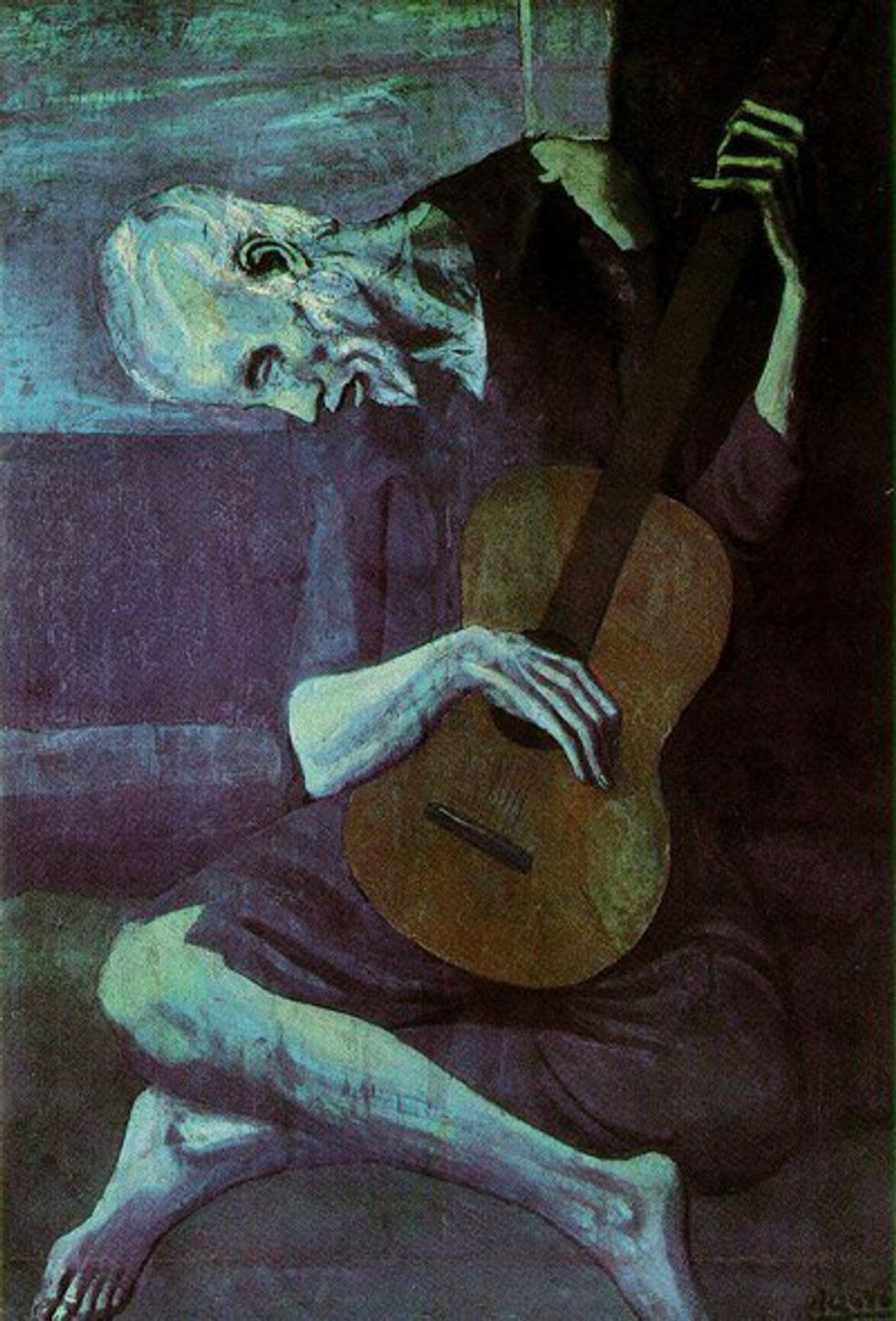One of the most incredible things about music is a composer's ability to manipulate a listener into feeling a certain way simply by playing with the way different pitches and combinations of sounds interact with our ears, our brains, our memories, and ultimately our emotions. It is an amazing thing that we often take for granted. But think about it. Even if a piece of music does not have lyrics, our brains are able to interpret music as happy or sad, uplifting or ominous, smooth or anxious. Music evokes feelings unlike any other art form. Some of it has to do with tempo and lyrics, but a major aspect of music's ability to evoke feelings is the musical key.
Even if you haven't had any musical training, you have probably still heard of "major" and "minor" keys. The way-too-short explanation of the difference between a major and minor key is that, in a minor key, the "distance" between certain notes is smaller than in a major key. That is to say, certain notes are more similar in frequency. This subtle difference greatly affects the way we hear music and the way our brains interpret it. Major keys are often associated with happy, celebratory music, while minor keys are associated with somber, ominous, or sad songs.
Try hearing it for yourself. Listen to just a few seconds of this chord progression and I can guarantee you will interpret it as "sad", or at least something other than "happy."
That's because it is in a minor key. Just that combination of notes makes you feel sad, somber, or uneasy without you even having to think about it.
There are many theories as to why this is the case. Some people theorize that it simply boils down to culture and the contexts in which we are used to hearing certain types of music. For instance, we are used to hearing songs in major keys during times of celebration, such as the "Wedding March" and "Happy Birthday." On the other hand, songs in minor keys are used to evoke negative emotions such as tension, sadness, or despair -- think Beethoven's "Symphony in C-Minor" (dun-dun-dun-DUUUUUUN).
Think of how a painter will use warm reds and yellows to depict happiness or comfort and cold blues and grays to depict sadness or despair. Songwriters employ a similar strategy using major and minor keys.
In fact, if you can think of a song that is well-known for being "sad," (e.g. basically every well-known Adele song ever) there is a good chance that it's in a minor key. "Wrecking Ball" by Hannah Montana Miley Cyrus is a good example. The original recorded key is D-minor. Listen to a little bit of it. Or the whole thing because it's an awesome song:
Now, if you take that song and change it to a major key, it completely changes the mood of the song. Listen to this piano version in which the song is transposed into D-major. Notice what a huge difference it makes.
What was once a sad, emotional, angsty song is now lighter, happier, and almost whimsical. Cool, huh?
This phenomenon can be explained by feature of music called "musical dissonance." Minor keys feature certain notes that are closer together in frequency. For example, a C-major chord features the notes C, E, and G while a C-minor chord is composed of the notes C, E♭ (E-flat), and G. In the minor chord, the 3rd note in the C-scale (E) is lowered by one note. Because C and E♭ are closer together in frequency, it creates tension, almost as if the two are clashing or fighting for attention. This tension is less pleasant to the human ear, and it makes a song sound harsh, sad, or ominous and more likely to elicit negative emotions. This is known as "dissonance." Major keys by contrast are characteristically less dissonant, and so switching from a minor to a major key will most likely change the entire tone of the song from "negative" to "positive."
Listen to another example. Here's the famously sinister "Imperial March" from "Star Wars," transformed into a joyous, triumphal victory tune, simply by switching the key from minor to major:
This trick works when you do it the opposite way as well. Check out this version of the National Anthem transposed to a minor key and tell me it's not just the creepiest thing you've ever heard:
Just changing the key from major to minor transforms "The Star Spangled Banner" from celebratory, inspiring and uplifting to something that is downright dark and mournful. It's less, "Amber waves of grain" and more, "Barren, desolate post-apocalyptic wasteland."
Even if you don't find this as mind-blowingly cool as I do, think about it this way: the human brain is the most complex thing in the entire universe, capable of trillions upon trillions of calculations per second, and all it takes to manipulate it and trigger specific emotions is changing the key of a song from major to minor. Even if you don't try to pick up on it, your brain automatically does. Music affects us on the subconscious level. Maybe I'm just a nerd, but to me that's pretty incredible.























